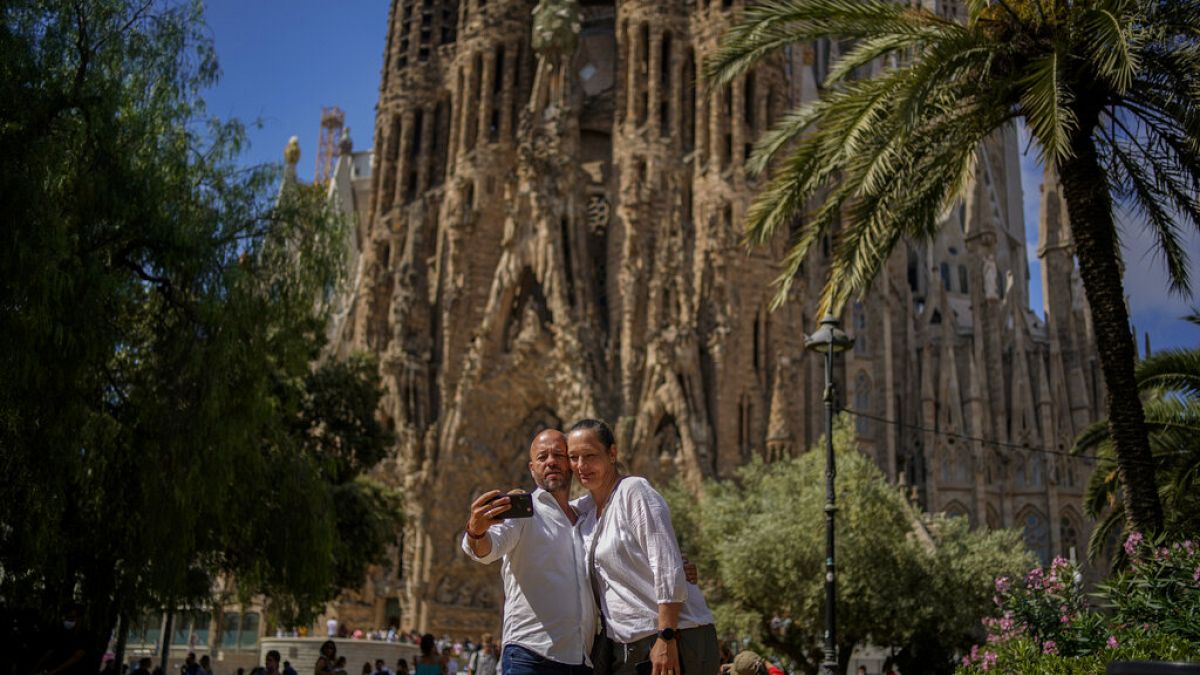The city of Barcelona is facing protests against mass tourism, with thousands of people taking to the streets to demonstrate against tourist overcrowding. Over 150 collectives, organisations, and social movements joined the protests, calling for actions to curb tourism before the upcoming summer season. The protesters shouted slogans such as “tourists, go home” and symbolically sealed off hotels and restaurant terraces. Martí Cusó, a spokesperson for the Association of Neighbours of the Gothic Quarter, emphasized the need to prioritize fairer economies over tourism in the city.
Barcelona, as Spain’s most visited city, has been struggling with over-tourism, attracting an average of 32 million visitors annually. The city council recently voted to increase the tourist tax to €4 per person in an effort to address the negative impacts of tourism on the local community. Local residents expressed concerns about the effects of tourism and speculation on housing affordability for Spaniards, with the city council announcing plans to eliminate roughly 10,000 tourist flat licenses over the next five years. This measure aims to prioritize residential use over tourist accommodation in response to the national housing crisis.
The protests in Barcelona are part of a global trend of cities taking action to combat the negative effects of mass tourism on local communities. Barcelona’s move to restrict tourist accommodation licenses reflects a growing awareness of the need to prioritize the well-being of residents over the demands of the tourism industry. By addressing issues such as housing affordability and overcrowding, the city aims to create a more sustainable and equitable economic model that benefits all residents. As the summer season approaches, Barcelona is taking proactive steps to ensure that tourism does not come at the expense of the local population’s quality of life.
The demonstrations in Barcelona represent a grassroots effort to raise awareness about the impact of mass tourism on the city’s infrastructure and community. By highlighting the need for sustainable tourism practices and prioritizing the needs of local residents, activists and organizations are calling for a more responsible approach to tourism management. The protests serve as a reminder of the importance of balancing economic growth with social and environmental considerations in order to create a more equitable and resilient urban environment. As Barcelona navigates the challenges of over-tourism, citizens are coming together to advocate for a more inclusive and sustainable future for the city.
Barcelona’s decision to increase the tourist tax and phase out tourist flat licenses reflects a commitment to addressing the negative effects of mass tourism on the city. By taking proactive measures to regulate tourism and prioritize residential use, Barcelona is sending a clear message that the well-being of its residents is paramount. As cities around the world grapple with the consequences of unchecked tourism growth, Barcelona’s actions serve as a model for how urban centers can balance economic prosperity with social responsibility. By listening to the concerns of local residents and implementing policies that support sustainable development, Barcelona is paving the way for a more equitable and resilient future.










